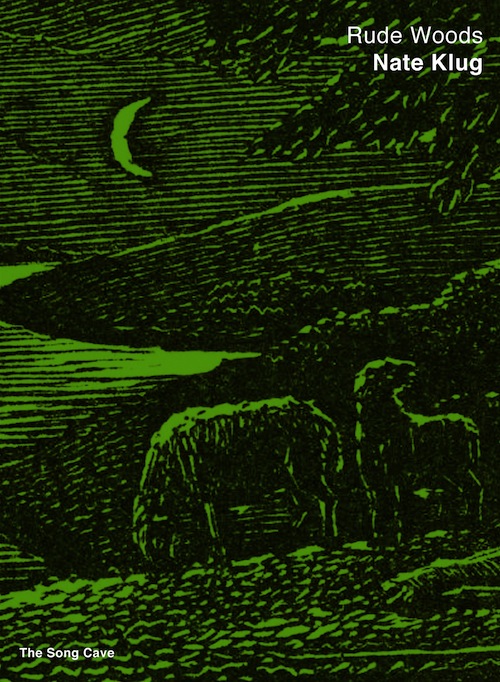Wool Will Never Have to Dye: On Nate Klug's Rude Woods

We were fortunate enough to hear Nate Klug read from Rude Woods (The Song Cave 2013)--his translations of Virgil's Eclogues--the other night at Berl's Poetry Shop. Should he be doing the same in your neck of the woods, we highly suggest you go. W.R. Johnson has it right in his introduction: “Klug has devised a conversational idiom that relies on spare diction and spare syntax, on a pure clarity of sight and sound to give us superb poems that give Virgil’s pure lyricism a genuine ‘answering form.’” And Jessica Comola has reviewed the book today for HTMLGIANT, noting Klug's unique translation:
Eschewing the constraints of a strictly “faithful” translation in favor of a more multifaceted dialogue with Virgil’s Eclogues, Klug himself becomes one of the lyrical shepherds he invokes as he responds to the Eclogues which are themselves, he writes, “poems about responding—listening, picking out, and answering back the pleasures of song.” Klug’s brief examination of each of Virgil’s original ten eclogues offers a contemporary take on the pastoral tradition that brings to life both Virgil’s lyric refinement and dynamic content.
Comola also takes on the dense lyric:
from “A Hymn to Prophecy” (from Eclogue IV):
“wool will never have to dye: for the rams / will trick their fleeces, from boiled-saffron-yellow / to the deep purple produced by shellfish juice.”
or from “Against Epic” (from Eclogue VI):
“even this young orb called earth, / spinning dry, hardening, until things slowly / owned their own forms.”
or, lastly, from “Two Longer Love-Songs” (from Eclogue VIII):
“I saw you once and was lost. / Something wrong and warm carried me off.”
What we get here are emotion-driven images, but they are not grounded in the typical poetic gesture “I emote therefore my poems have gravity.” Instead, they are vivified by the transformative power of sensual detail. Not only are “wool” and the “earth” and the “you” brought to life for us as readers through the uniqueness of their portrayal, but the portrayal itself is metamorphosing—”Right there in the field, grazing lambs will go red” (from “A Hymn to Prophecy”).
But I must admit initial skepticism. A moment of strong lyricism will get my attention but often for the wrong reasons. The lyric, as many writers and readers know, has a tendency to overindulge. An emotive, senses-based series of poems about love and loss and shepherds singing in a flowery pasture could be a hotbed of disastrous pitfalls. But what Klug does well is interrogate these tropes and traditions even as his words participate in them. He creates tension by restraint—not through expected thematic or plot-drive narratives but through the imagistic and sonic qualities of the language itself.
In his translator’s note, Klug refers to this quality as “the rough music I sought”; it is “rough”—and “rude” and bitter and bruised. It is also imbued with a “sweetness” and beauty that, in moments, startles with its clarity of vision. It is this complex “song” that ushers forth the unexpected, “unnatural” environment of the new pastoral, a landscape that becomes less of a tangible place of sheep and shepherds, and more of a conceptual space in which sensual experience serves as the landscape itself.
Read the full review here.


